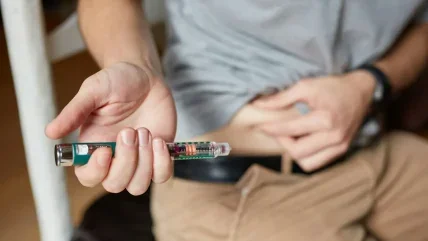
The US Food and Drug Administration (FDA) has approved Hikma Pharmaceuticals’ generic version of Victoza (liraglutide injection) 18mg/3mL to lower blood sugar in patients with type 2 diabetes.
The glucagon-like peptide-1 (GLP-1) receptor agonist is the generic version of Novo Nordisk’s diabetes drug Victoza.
It helps improve glycaemic control in adults and children 10+ with type 2 diabetes, alongside diet and exercise.
Last month, the FDA approved the first generic referencing Byetta (exenatide).
Liraglutide and other GLP-1 medications are currently in shortage. The FDA prioritises the approval of generics for drugs in shortage to improve patient access.
Victoza helps regulate blood sugar by mimicking GLP-1 effects in the pancreas, which are often lacking in type 2 diabetes patients.
Hikma Pharmaceuticals expects the drug to be available nationwide by year-end, following its tentative FDA approval in June.
FDA Center for Drug Evaluation and Research Office of Generic Drugs director Iilun Murphy said: “The FDA supports development of complex generic drugs, such as GLP-1s, by funding research and informing industry through guidance as part of our ongoing efforts to increase access to needed medications.
“Generic drugs provide additional treatment options which are generally more affordable for patients. Today’s approval underscores the FDA’s continued commitment to advancing patient access to safe, effective and high-quality generic drug products.”
The generic liraglutide injection carries a Boxed Warning for thyroid C-cell tumours. The regulator said the drug should not be used by patients with certain thyroid or endocrine conditions.
It also warns about pancreatitis, hypoglycaemia, kidney issues, and common side effects like nausea and diarrhoea.
Liraglutide, approved in 2010 for type 2 diabetes, gained FDA approval in 2014 for chronic weight management in adults with obesity.
In 2017, the US health agency expanded the indication for liraglutide to lower the risk of major adverse cardiovascular (CV) events in adults with type 2 diabetes and established CV disease.
In late 2020, it became the first FDA-approved therapy for adolescents with obesity and has a body weight above 60 kg and an initial body mass index (BMI) corresponding to 30 kg/m2 or greater for adults.






